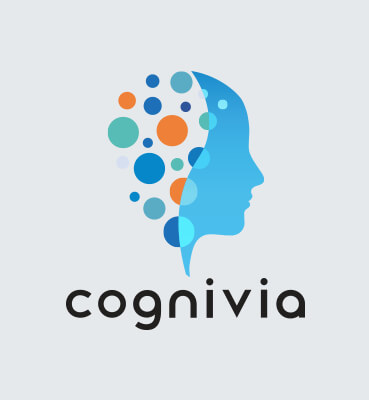For high quality clinical trial data, the voice of the participant (i.e. patient and/or caregiver) must be captured in the language that they can understand. In this blog post, we discuss the linguistic validation process of the participant questionnaire behind Cognivia’s clinical trial technology.
Cognivia offers a suite of clinical trial technology solutions that helps clinical trials address placebo response, improve participant adherence, and reduce drop out. Both solutions – PlacebellⓇ and Compl-AI© – start with a sophisticated evaluation of participant profile.
Taken at the start of a clinical trial with other baseline participant data, Cognivia’s proprietary questionnaire evaluates specific aspects of a participant’s profile, including personality traits and expectations. By examining how individual participant characteristics might impact the way the participant responds to and behaves during the study, study sponsors unlock access to information they need to better engage participants throughout the study and/or reduce noise in the statistical analysis.
This questionnaire must be completed by the clinical trial participant. To ensure the highest quality data and the best participant experience, it should be in their native language. This is also a regulatory requirement per ICH GCP E6 R2 and 21 CFR 50.
Why Linguistic Validation Matters
Diverse participant data is the key to evaluating efficacy in a clinical trial. However, the rise of global studies and decentralized clinical trials (DCTs) have added more complexity to participant data. Language is just one layer of this complexity.
The challenge is deeper than simply translating a document from one language to another. In different regions of the world, there are nuances within a specific language. For example, the Spanish spoken in Spain is not the same as the Spanish spoken in Mexico or Argentina.
Some languages also use different alphabets. For example, Russian, Japanese, and Korean all use a unique set of characters, as opposed to the standard 26 letter English alphabet.
It’s important that participant materials – including questionnaires and assessments like the one Cognivia deploys for our clinical trial technology solutions – are translated according to the native, local language with the right alphabet.
Here’s how this process works.
Cognivia’s Approach to Linguistic Validation
Cognivia’s proprietary questionnaires consist of instructions and questions for participants to answer. These questionnaires are first developed and validated in English as the source language.
Our questionnaires are used across the world in global clinical trials. To enable this, we have followed a two-step translation and validation process with the help of translation partners and linguistic experts.
#1. Forward/Backward Translation
Forward translation is the process of translating the questionnaire text from the source language (English) to the target language. Backward translation is the process of translating the newly translated text back into the source language.
This forward/backward process is a great first step to identify and correct any discrepancies or errors that may have occurred during the initial translation. However, we don’t stop here.
#2. Cognitive Debriefing
Cognitive debriefing is the process of further validating the accuracy of a translation.
This is conducted with a set of volunteers who speak the target language. They help ensure that the concepts have been correctly interpreted and preserved in the translation.
Following the cognitive debriefing and any necessary corrections, the questionnaire receives a certificate of Linguistic Validation by the translation agency.
Since this process is largely followed by the third party translation partner, Cognivia selects the translation agencies that ensure the highest quality process and results.
Cognivia’s Commitment to Quality with Linguistic Validation
In the drug development industry, maintaining a quality management system (QMS) is very important (and required by regulatory agencies). Cognivia has implemented a QMS and covers the entire linguistic validation process with internal SOPs.
Here are some important points about how we maintain quality in this process:
- We always complete the cognitive debriefing step. In clinical research, linguistic validation is only required for phase 3 clinical trials. However, Cognivia applies this process to early phase trails, too, to ensure quality data and a great participant experience.
- We always propose the Questionnaires to be completed electronically. This standardizes the process and enhances the quality of the data, so you don’t have to translate paper-based answers to an electronic form. We deploy questionnaires to clinical trial participants through our unik-me platform.
- We always choose vendors for quality over cost. For every translation need, we seek a linguistic partner based on quality and how well their process aligns with our SOP instead of looking for the cheapest option.
- We’re always translating new languages. Quality takes time. This is why we’re continuously translating our questionnaires to ensure there is no lapse for our ever-growing list of global clinical trial partners. So far, we have validated over 50 languages for use across the entire world.
Conclusion
Participant data is only as quality as the processes and tools used to collect it. This starts with being in the right language for the study participant. Care must be taken in the translation process to ensure the meaning doesn’t change from language to language, which is why validation is so important.
Cognivia’s dedication to quality as we translate and validate our questionnaires for participant use across the world underpins our commitment to upholding data integrity in global clinical trials. Our questionnaires are a reliable, stable method that can be used to better characterize participant personality profile. When combined with a validated machine learning algorithm, this data can be turned into valuable, actionable insights for sponsors to apply to their participant engagement strategies and/or statistical analysis.
To learn more about how these questionnaire works and how to bring actionable participant insights to your next clinical trial, start the conversation here.





